Your legacy of achievement will serve as a testament to your exceptional leadership
In a surprising turn of events, Vice President of Academic Affairs, Dr. Diane Ryan, has tendered her resignation from Yavapai Community College, as confirmed by a recent press release issued by the College. Despite her relatively short tenure, having joined the institution on September 3, 2019, Dr. Ryan leaves behind an exemplary record of remarkable achievements.
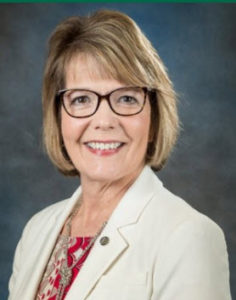
Dr. Diane Ryan
 It is puzzling, isn’t it. Why did Yavapai Community College withhold information from the Blog when it contacted it on June 27 and 28 asking for information confirming the status of Dr. Diane Ryan? Was there some reason for the delay? For trying to hide the resignation? Umm?
It is puzzling, isn’t it. Why did Yavapai Community College withhold information from the Blog when it contacted it on June 27 and 28 asking for information confirming the status of Dr. Diane Ryan? Was there some reason for the delay? For trying to hide the resignation? Umm?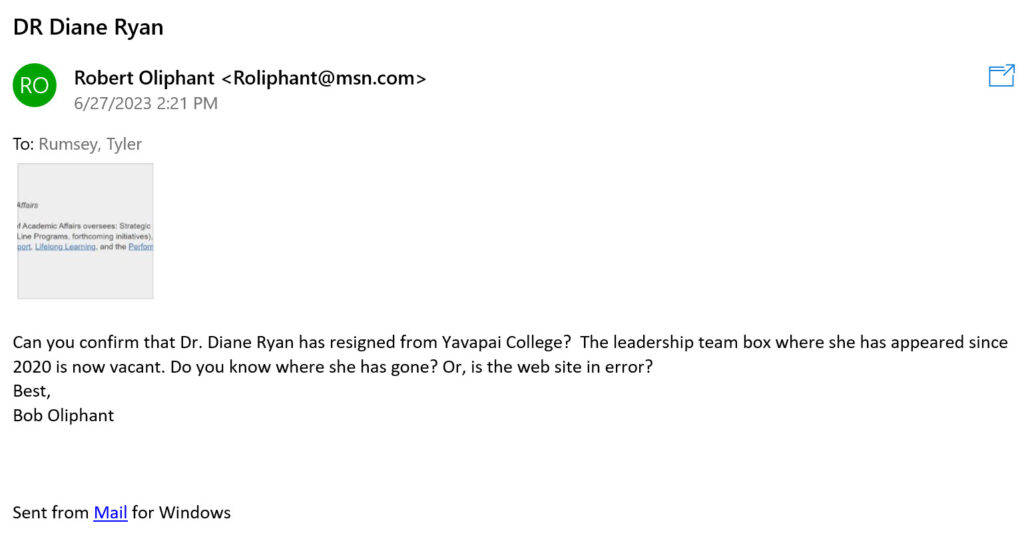
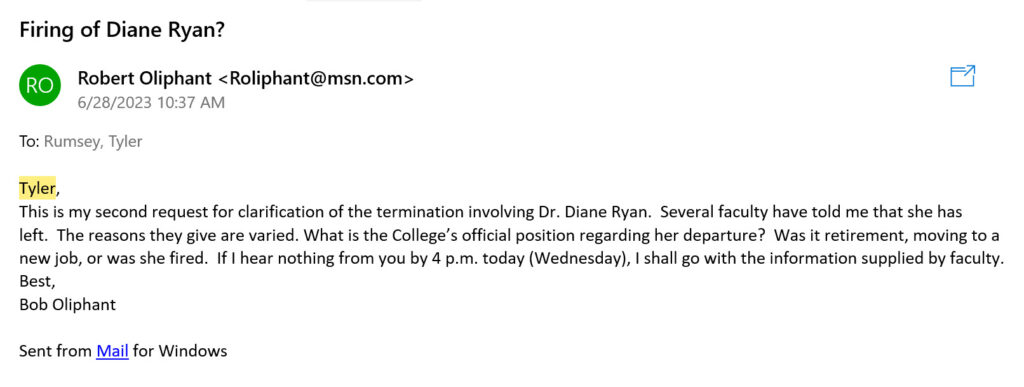

 former Third District representative, Paul Chevalier, had to resort to Arizona’s public records law to obtain information about a project in his own district. Moreover, the College has outright dismissed inquiries from media outlets and residents, opting to selectively respond to questions when it suits their interests.
former Third District representative, Paul Chevalier, had to resort to Arizona’s public records law to obtain information about a project in his own district. Moreover, the College has outright dismissed inquiries from media outlets and residents, opting to selectively respond to questions when it suits their interests.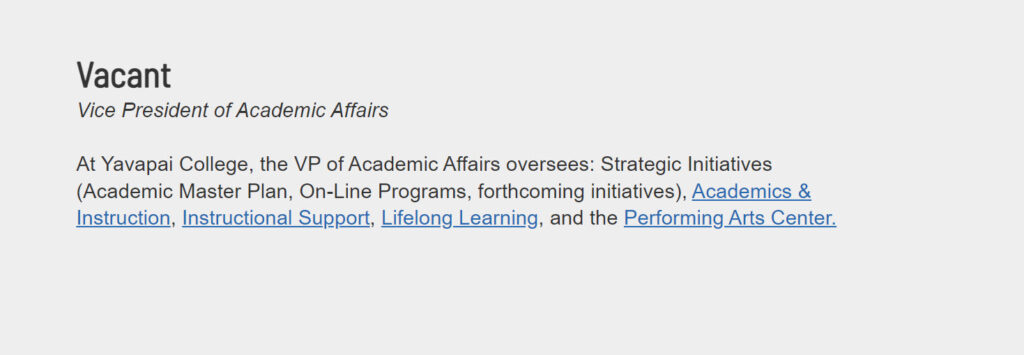
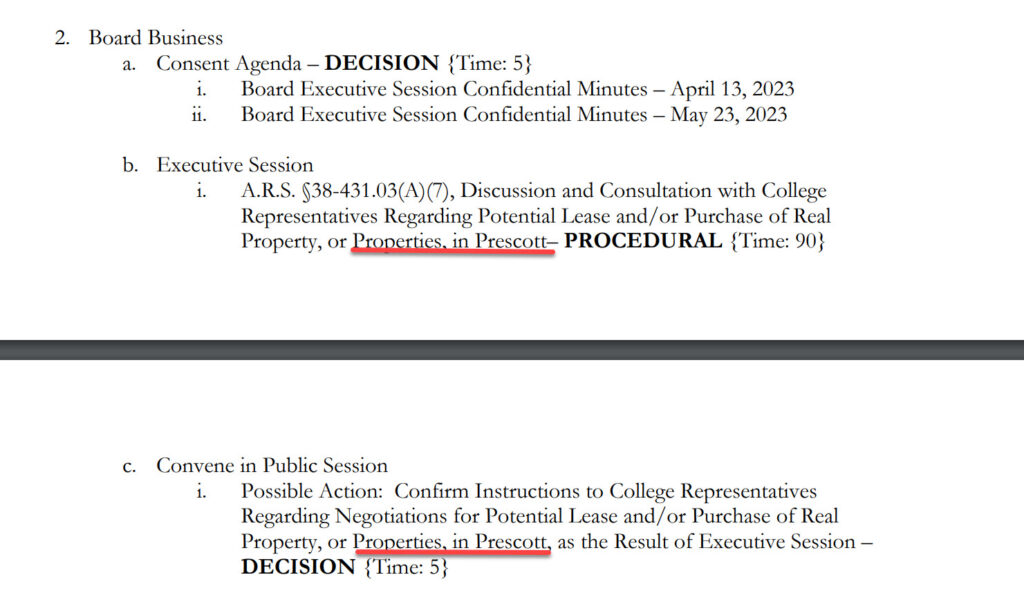
 It is suspected that the aforementioned motion pertains to the expansion of the Career and Technical Education Center (CTEC) at the Prescott airport. It is worth recalling that executives from the Community College discreetly included a last-minute request for ten million dollars in the 2023-24 budget for a vaguely worded project at CTEC. Despite the substantial nature of this request, it proceeded through the budget process in May with minimal public discussion or explanation. Remarkably, the Board members failed to pose any meaningful public questions regarding it.
It is suspected that the aforementioned motion pertains to the expansion of the Career and Technical Education Center (CTEC) at the Prescott airport. It is worth recalling that executives from the Community College discreetly included a last-minute request for ten million dollars in the 2023-24 budget for a vaguely worded project at CTEC. Despite the substantial nature of this request, it proceeded through the budget process in May with minimal public discussion or explanation. Remarkably, the Board members failed to pose any meaningful public questions regarding it. Due to its strict operational confidentiality policy, determining the exact allocation and utilization of the funds for the 10.6 adjunct positions that were removed from the budget of Yavapai Community College’s Verde Campus in the 2023-2024 fiscal year, and purportedly reassigned to “other schools,” has posed significant challenges. However, the Blog has managed to uncover some information thus far.
Due to its strict operational confidentiality policy, determining the exact allocation and utilization of the funds for the 10.6 adjunct positions that were removed from the budget of Yavapai Community College’s Verde Campus in the 2023-2024 fiscal year, and purportedly reassigned to “other schools,” has posed significant challenges. However, the Blog has managed to uncover some information thus far.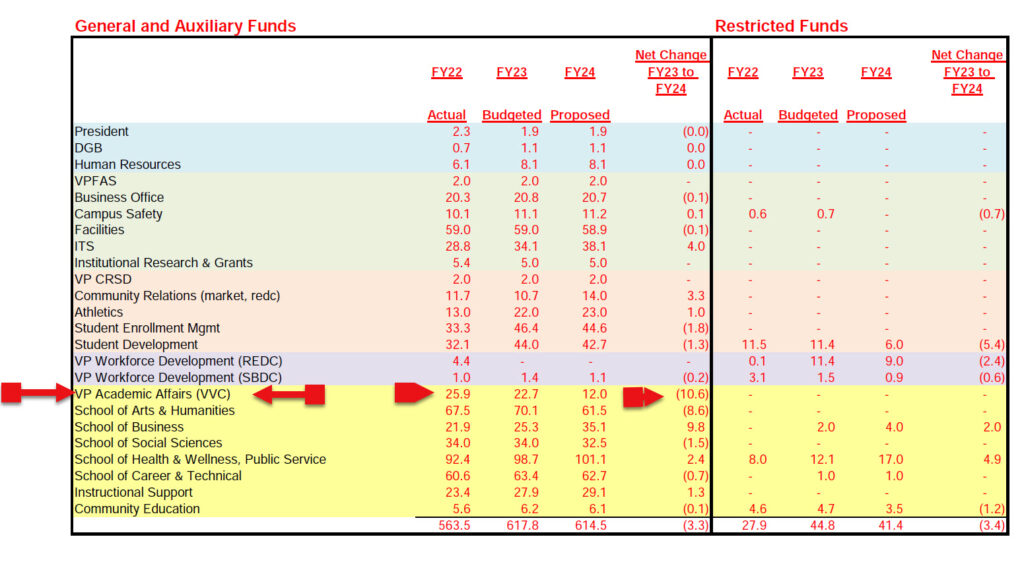
 The Yavapai Community College District Governing Board decided in a secret executive session to increase the base pay of Yavapai Community College President, Dr. Lisa Rhine, by ten percent at the Board Workshop held Tuesday, May 23, 2023. It also agreed during the same secret meeting to increase all of her additional benefits by 10%. Among those benefits are apparently a car, travel, and living allowance and possibly more.
The Yavapai Community College District Governing Board decided in a secret executive session to increase the base pay of Yavapai Community College President, Dr. Lisa Rhine, by ten percent at the Board Workshop held Tuesday, May 23, 2023. It also agreed during the same secret meeting to increase all of her additional benefits by 10%. Among those benefits are apparently a car, travel, and living allowance and possibly more. 